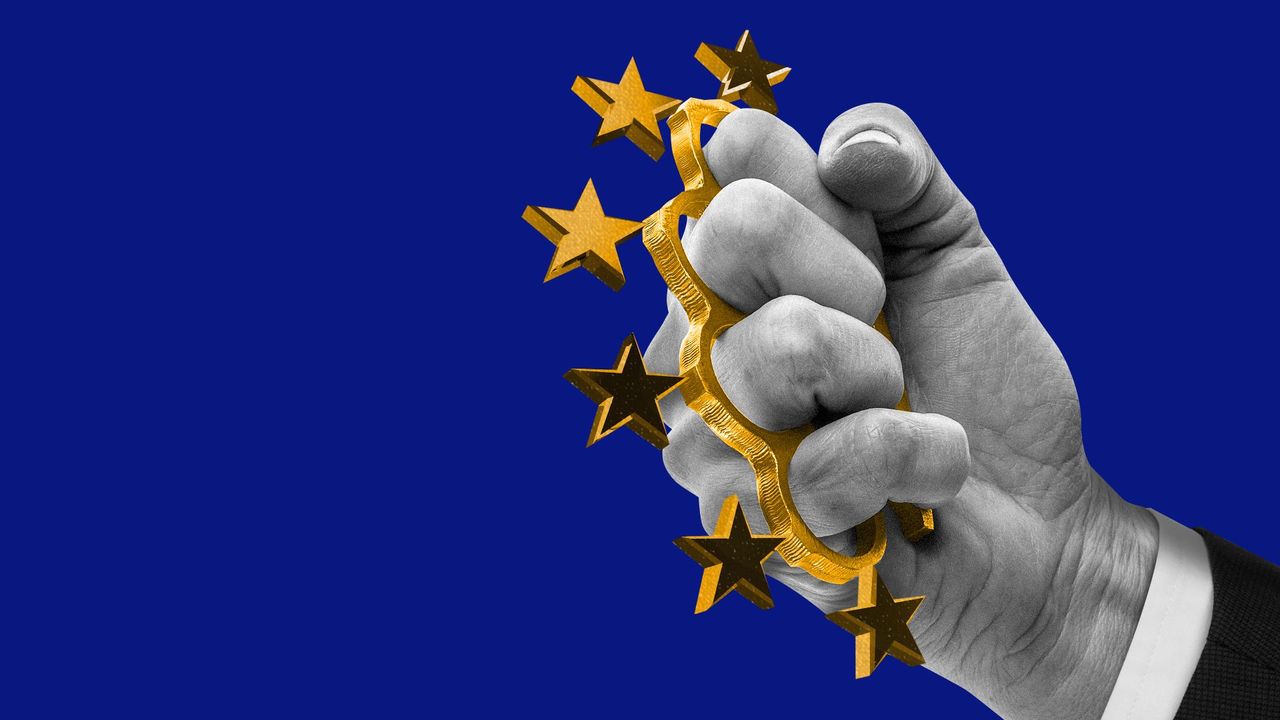[ad_1]

Europe faces two major crises – economic and Protection Spheres – they are both sides of the same currency at the end.
Why is this important: Europe has experienced a subsidiary economic growth for a generation and has invested in its own safety. Both problems come to a head, and the hostility of the Trump administration is the catalyst.
- After many decades investing and dull productivity, Europe reduces US security duties, new Fees In its exports, and a regulatory environment that plays domestic companies in a straight jacket.
- European elite has agreed that the lack of competitive fire in the economic and national security arena has caused a lot of dependence on the US government to protect the US government from Russia.
Conspiracy: In a top speech in Munich, the Chairman of the European Commission, Ursula Van Ter Lean, described a new world-one of which focuses on geo-political conflict and economic security.
- A rare action was finally used at the beginning of the Gov -19 Pantheem, to raise security costs to relax the financial rules of the continent and protect member states from Russia.
- “I believe we are now in another period of the crisis that guarantees a similar attitude,” said Van der Leine.
Mario Tragedy, Former European Central Bank president and Italian prime minister said the EU policies had strangled the economy rather than US fees.
- A Op-Ed on Friday Financial TimesDragie wrote that the European Union has failed to solve the issues and demand problems caused by severe regulation policy and depressed government investment. “These two disadvantages – supply and needed – are often in Europe’s own product. So they are in power to change.”
- “Until now, Europe has focused on single or national targets without calculating their collective cost,” Dragie wrote.
- “But it is now clear that the interests of Europeans, healthy public funds or national autonomy are not threatened by the pressure from abroad,” he continued. “That is why radical change is needed.”
What to see: A detailed Report In the hardships of the EU, Track The continent supported the idea of borrowing as a whole for economic investment.
- “There are two biggest challenges on the bike,” tells Haiti Krebo-Redicar Axios, senior and former foreign department chief economist of the Foreign Relations Council.
- “It is easy to negotiate Europe charges, which is as short -term, rather than acknowledging a joint credit processing mechanism for their national security,” he added.
A Rupture Between Europe and the United StatesIt moves with a breathtaking pace, accelerating the recognition of long -growing economic problems.
Catch quickly: US officials – including Foreign Secretary Marco Rubio – are in Riyadh, Saudi Arabia, to meet Russian officials on the future of Ukraine. These were the first talk after the 2022 invasion of Russia.
- The lack of negotiations on the future of the continent is the latest blow of the Ukrainian and European leaders, which prompted the US-European Union relations.
- President Trump has long said the US has taken over the burden of NATO on EU countries. Last weekThe administration said that EU countries should not rely on the US for security.
Between the lines: In recent months, Europe’s economic authorities have been in the midst of political confusion over budget conflicts, at least one occasion, scared Bond market.
- Germany is holding an election in its biggest economy in the coming days after the different visions of how to ignite growth.
- This is a symbol of the already bad economic reality of Europe – leading to the lack of workers of the elderly, for example – to adjust more security cost demands.
The bottom line: “You see a world with a greater uncertainty, the distance between peace and war is low,” tells the Europe of the Pantheon Macro Economics.
- “Europe needs a completely different industrial model, but it takes time,” says Wistessen.
[ad_2]
Source link













